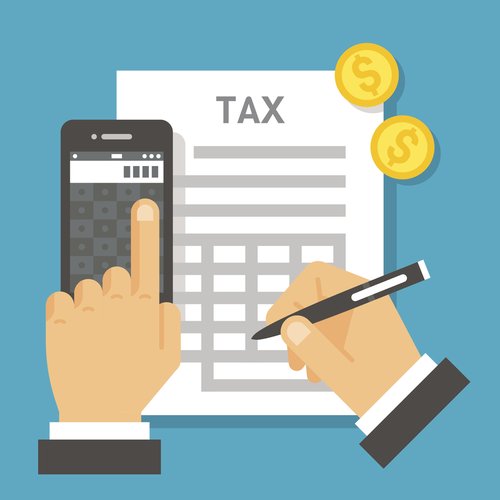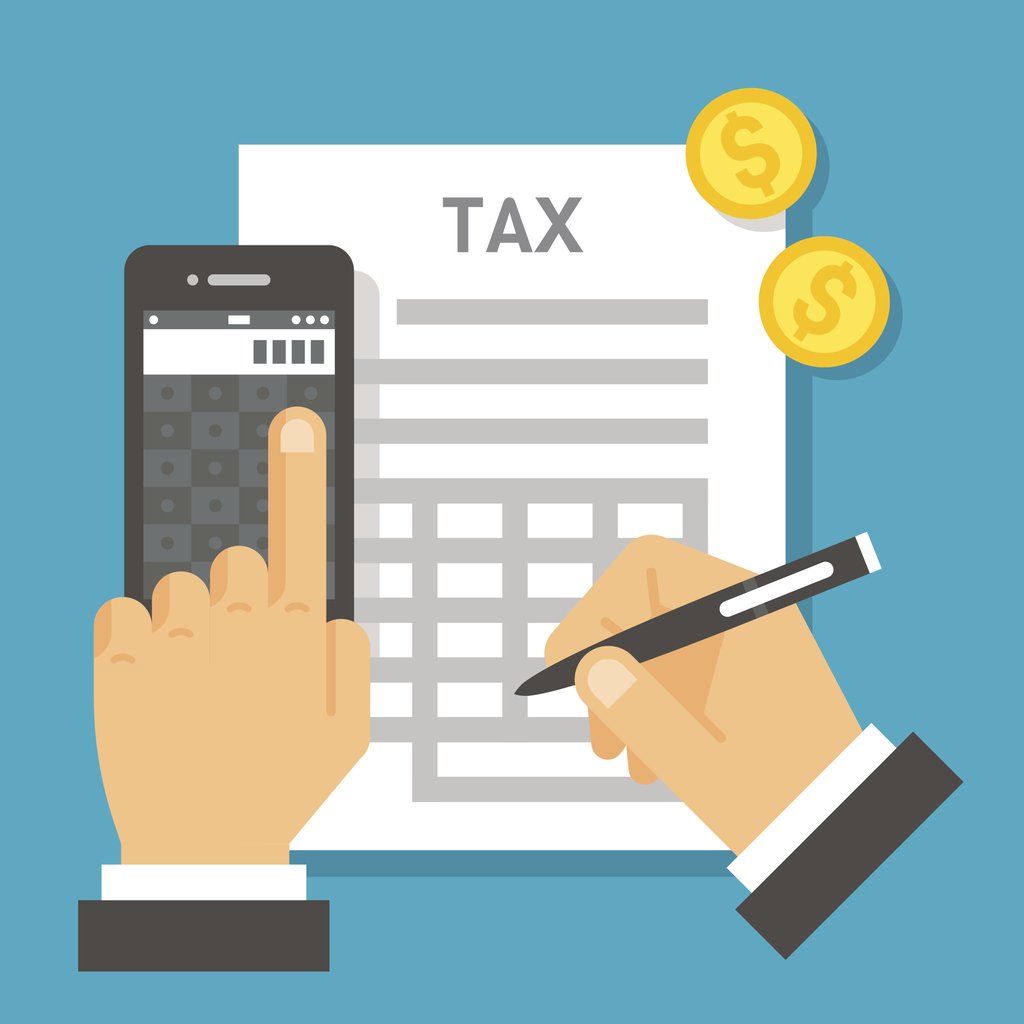
Every tax season, many of us are forced to confront the same question: should you fork out for an accountant or brave it alone? We break down the pros and cons of each.

iStock-512536814
First things first: Can I file income taxes on my own?
You sure can, and plenty of Canadians do. Of 31 million tax returns received in a year, Canada Revenue Agency doesn’t track who used a fancy accountant or a family friend, who downloaded some free software, and who sat at their kitchen table with a pencil and a calculator. Surveys vary by year, and their findings depend largely on who’s asking, but most find somewhere between a quarter and a third of Canadian filers tackle taxes all on their own.
So, do you need professional advice or not? Well, as you might expect, it depends: “For the most part, if your money situation is straightforward and you’re capable of getting it done on time, of course you can file your own taxes,” says Vancouver-based chartered professional accountant Jason Ding. The system is designed as such and CRA agents are on call and happy to assist with any questions.
If you’re sufficiently tech-savvy, comfortable with some basic math and understand the basics of taxes in Canada, you can absolutely do your own taxes. A good litmus test to help you decide? “If you feel confident enough in yourself that once you hit submit, you won’t lose any sleep worrying about if you’re right or not, then go for it,” says Stephanie Folahan, chief executive officer of Premier Accounting & Tax Inc. in Halifax.
What are the pros and cons of filing my own taxes?
A few benefits of doing your taxes: You can do them on your own time, in the comfort of your own home, in your pyjamas in front of the television, for free. You can work as slowly and leisurely as you feel without paying by the hour. No one knows your finances better than you, hopefully, so you’re already your own best primary source.
And don’t forget the priceless perk of an important life skill learned. “Your tax return is really just one big mathematical formula to teach yourself,” says Mr. Ding. The same job should be easier every year afterward.
Alas, some cons: Since it’s not your specialty, filing your own taxes will certainly take many more hours of your time (which is also money, naturally). Despite all your best efforts, you almost certainly won’t find each and every tax credit you’re entitled to. At the same time, you could easily make other claims you’re not entitled to.
If and when the CRA audits you, you’ll be defending yourself alone (recall that if you act as your own lawyer, you also have a fool for a client). And some personalities will just never find the discipline and self-motivation to get around to the unpopular task all on their own.
What about tax software and other options?
In between just you going rogue and an expensive accountant is a plethora of other ways to get those taxes done. CRA-approved software such as Netfile or ReFile can be downloaded onto your computer or mobile phone for no (or very little) cost. TurboTax, Wealthsimple Tax (formerly SimpleTax) and H&R Block all offer free versions of their software, though don’t be surprised if you end up paying for add-ons such as audit protection and expert help.
“There’s a tonne of software available where you just plug in your numbers and click a button,” says Mr. Ding. “It’s supposed to be easy, but if you’re tech-challenged or not comfortable online, then it’s not so easy.”
For those people, a walk-in or prebooked appointment at a tax clinic could be a great option. If you’re lucky enough to have a friend or a friend of a friend who’s an accountant, that’s an even better option.
Who should hire an accountant?
For anyone who isn’t confident, even if their financial situation is simple and their self-doubts are entirely unfounded, peace of mind is easily bought and well worth the price tag. “If you’re not comfortable researching on the CRA website, calling the CRA if you have to or clearly explaining your situation to them, I’d suggest hiring an accountant,” says Ms. Folahan.
Ditto if you anticipate you’ll need any other kind of support throughout the year and would like a handy human to talk to. “We’ll answer your questions any time,” says Ms. Folahan. “Our industry doesn’t close on April 30.”
Or maybe, and this is far a more likely possibility, you have the opposite problem: procrastination. “If you’re a chronically late person, an accountant can help hold you accountable,” says Mr. Ding. If a stern-looking appointment in your calendar is enough to save you from hefty late fees charged by CRA, booking time with an accountant could be the responsible and frugal choice.
Other people should use a professional no matter how keen and savvy they feel. “Anyone self-employed probably should hire an accountant, not because you’re not capable of doing it yourself, but because there are new tax credits and incentives every year that you can’t possibly know. It’s our job to know,” says Mr. Ding. For this reason, Ms. Folahan suggests that “anyone with an even slightly more complicated money situation should probably hire an accountant.”
Lastly, and no matter how much money you make or don’t make, just wanting an accountant to do your taxes because you don’t want to is a perfectly good enough reason to outsource a task you find tedious. If you want an accountant and can afford one, well, that’s why they’re there.
What are the pros and cons of hiring an accountant?
Some benefits to consider: Taxes can be hard, complicated and frustrating, so tapping out is a huge stress relief. An accountant knows way more about taxes than you ever will, including all the year’s specific updates, in order to maximize your tax benefits. They’ll no doubt complete the task in a fraction of the time you would. Ideally, their work and attention to detail will save you from an audit down the line.
But there are some cons: You’ll have to find an accountant if you don’t have one already and hustle for an appointment on their time (especially in March and April). They’re not cheap so expect to fork out a few hundred dollars. With few exceptions, if mistakes are made and found during an audit, “the onus is always on the taxpayer just the same,” says Mr. Ding.
And no matter how big their bill, any accountant should land at a similar final figure on your return. “Someone who charges a thousand bucks and somebody else who charges $40 and works from their kitchen table should theoretically get the exact same results,” says Ms. Folahan.
How should I choose an accountant?
Though you don’t see your accountant as often as your dentist or doctor, you should still choose one with similar consideration and care. “Money is so emotional and people are so vulnerable when they have to share their finances,” says Ms. Folahan. You don’t have to be best friends, but you do have to be comfortable enough with them to be honest and admit if and when you’re confused.
“I often hear people say their last accountant made them feel so stupid,” she says. That’s them not doing their job, by the way, and it’s a sign you should go elsewhere. “If you don’t feel heard, comfortable and supported, it’s time for a new accountant.”
Just like a dentist or doctor, the very best way to find an accountant is by referral. “Friends tend to have similar traits and styles,” says Ms. Folahan. Bonus points if a friend is in the same industry as you, though it’s not necessary. “If you have a friend who you really like who really likes their accountant, you’ll probably like them too.”
Whether you use a family friend as your accountant who works for a bottle of wine, or a swanky accountant who costs upward of $1,000, their price tag certainly doesn’t mean you’ll pay any less tax, nor that a heftier fee isn’t worth it if you love the service they offer. Similarly, someone with specialized experience in a particular industry or field is likely more valuable than a series of letters and designations on their CV.
Take your time, do your research, and make a few consultation calls until someone feels right. “It’s all about finding the right fit for you,” says Ms. Folahan.
Comments are closed.
